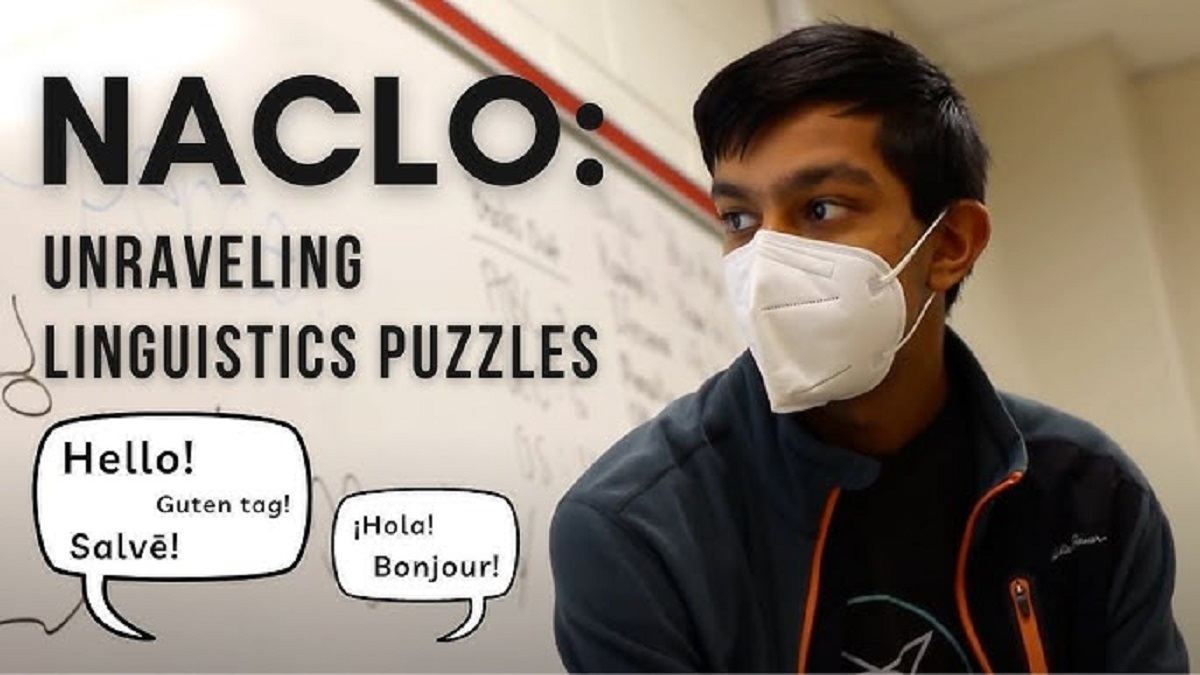Linguistic puzzles are fascinating tools for testing and enhancing problem-solving skills, and NACLO (North American Computational Linguistics Open competition) offers a perfect platform for students to dive deep into the mechanics of language. Every year, NACLO hosts a series of linguistic competitions where high school and middle school students tackle complex puzzles involving syntax, phonetics, semantics, and computational linguistics. Participants have access to various resources, including linguistic puzzle PDFs, to help them prepare for the competition. This article provides an overview of NACLO, the value of linguistic puzzles, and where students can find useful PDF resources to sharpen their skills.
What Is NACLO?
The North American Computational Linguistics Open competition (NACLO) is an annual event that challenges students to solve puzzles based on language and computational linguistics concepts. Founded in 2007, NACLO has grown into a prestigious competition, drawing thousands of students from across North America. It is an excellent opportunity for young language enthusiasts and aspiring computational linguists to engage with the complexities of language structure and meaning. The competition is divided into two rounds: the open round, which is available to everyone, and the invitational round, for top performers from the open round.
The puzzles in NACLO cover a wide range of linguistic phenomena, often including unusual or lesser-known languages, and require a mix of logical reasoning, pattern recognition, and linguistic knowledge to solve. While no specific language skills are required to participate, students often benefit from practice and familiarity with the types of problems presented in past competitions.
Why Are Linguistic Puzzles Important?
Linguistic puzzles are not just entertaining; they also promote a unique kind of analytical thinking. By working on these puzzles, students engage in deep pattern recognition, which is crucial for understanding how languages work. Whether it’s decoding an unfamiliar script, identifying grammatical rules, or recognizing patterns in syntax, linguistic puzzles encourage students to think critically and apply logic to decipher meaning from complex information.
Moreover, linguistic puzzles are an excellent introduction to computational linguistics, the study of using computer algorithms to understand language. In NACLO, students encounter problems that demonstrate real-world applications, such as machine translation and natural language processing (NLP). As technology increasingly relies on NLP for applications like voice recognition, chatbots, and AI-driven translation services, skills learned through linguistic puzzles become highly relevant and valuable.
Where to Find Linguistic Puzzle PDFs for NACLO Preparation
For students preparing for NACLO, past competition materials and practice puzzles are invaluable resources. NACLO’s official website provides a collection of past competition puzzles in PDF format, which can be freely downloaded and used for practice. These PDFs offer a variety of puzzles that cover diverse linguistic topics, helping students become familiar with the types of questions they might face during the competition.
Another valuable resource is the Linguistics Olympiad materials from other countries. For example, the International Linguistics Olympiad (IOL), as well as regional competitions in countries like the United Kingdom, Australia, and Russia, also offer linguistic puzzles similar to those in NACLO. These competitions often release their materials in downloadable PDF format, which can be accessed through their respective websites. Since many linguistic puzzles are language-independent, these resources can be excellent practice tools for NACLO participants.
How to Use PDFs for Effective Study
When studying from PDFs, a structured approach can make a significant difference. Here are a few tips for using linguistic puzzle PDFs effectively:
- Start with Basic Puzzles: Some puzzles can be quite challenging, especially for beginners. It’s often helpful to start with simpler problems to build confidence and gradually work up to more complex puzzles. Many NACLO PDFs are organized by year, so starting with older competitions can give you a sense of the typical puzzle format before tackling newer, potentially more challenging problems.
- Analyze Puzzle Solutions: NACLO and other competitions usually provide solutions to past puzzles, often included in the PDF or as a separate download. Reviewing these solutions helps students understand different problem-solving techniques and learn from any mistakes they made. Focus on understanding the logical steps used in each solution, as this will improve your ability to approach similar puzzles independently.
- Identify Common Patterns and Rules: Language puzzles often have recurring patterns or rules. By practicing regularly, students start recognizing these patterns more quickly. For example, some puzzles might revolve around specific linguistic features like vowel harmony, affixes, or syntactic structures. Developing a toolkit of strategies for recognizing and solving these recurring patterns will increase efficiency during the actual competition.
- Form Study Groups: Solving puzzles in a group can make preparation more engaging and insightful. When students discuss different approaches to the same puzzle, they can learn new strategies and gain perspectives they might not have considered on their own. Study groups also offer support and motivation, making the process more enjoyable and less daunting.
Additional Online Resources
Besides PDF resources, there are several websites and online communities dedicated to linguistic puzzles and NACLO preparation. Websites like Linguistics Challenge and OLPC (Open Linguistics and Problem Solving Community) feature a wide array of puzzles for all levels. Some forums and online groups, such as the NACLO subreddit or Facebook groups, also allow participants to share resources, discuss challenging puzzles, and seek advice from past competitors.
Another valuable resource is YouTube, where some educators and enthusiasts post tutorials or walkthroughs of complex linguistic puzzles. Videos can be a useful complement to written PDFs, as they visually guide students through the problem-solving process.
Benefits of Participating in NACLO
Participation in NACLO is a great way for students to showcase their analytical skills and interest in languages, which can benefit them in college applications and future career paths. The competition fosters a sense of intellectual curiosity and perseverance, valuable traits for any academic or professional pursuit. Additionally, NACLO alumni often go on to pursue studies and careers in fields like linguistics, computer science, and artificial intelligence, where the skills they developed in solving puzzles become highly relevant.
Conclusion
NACLO’s linguistic puzzles offer a challenging yet rewarding experience for students interested in language and problem-solving. With the availability of linguistic puzzle PDFs from NACLO and other competitions, students have ample resources to practice and improve. By taking a structured approach to studying, analyzing solutions, and engaging with online resources, students can build a solid foundation for tackling NACLO’s unique and intriguing challenges. Whether for competition or personal growth, exploring linguistic puzzles is a journey that builds critical thinking, creativity, and a deeper appreciation for the complexity of language.




